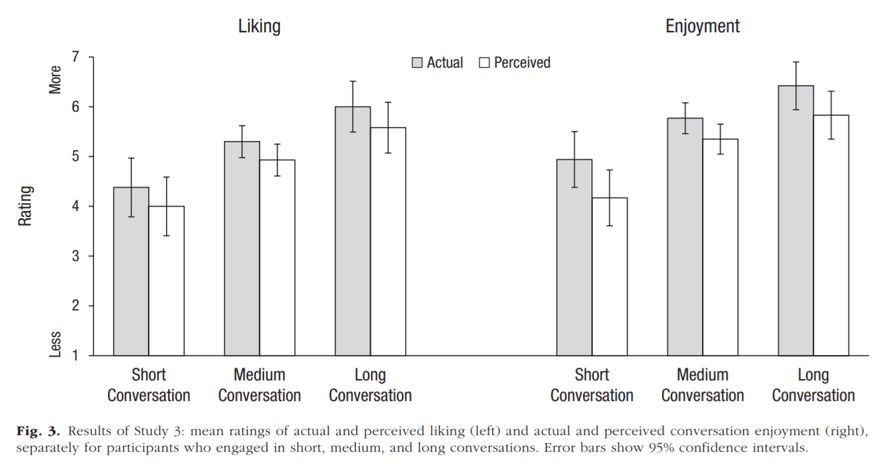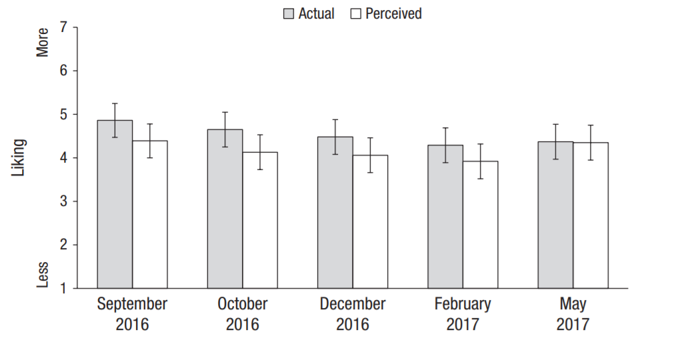The liking gap: others probably like you more than you think
Do you know the following feeling? You go to a conference or a farewell reception, and you walk into a room full of strangers. You feel insecure and find it scary to approach people to start a conversation. You worry about whether they will like you and whether you will make a positive impression on them. Just because they look at you kindly doesn't automatically mean you like them. People are good at acting sometimes. If you recognize this kind of insecurity in yourself, read on. A study by Boothby et al. (2018) shows surprising findings that are important for the types of situations described above.
Exploring the liking gap
Previous research (Savitsky et al., 2001 has already shown that most people tend to judge themselves overly critically in social interactions and that others generally judge us somewhat milder than ourselves. Erica Boothby and her colleagues call this phenomenon the liking gap, and they investigated it further.
In their first study, they found that people do indeed underestimate how nice others think they are after a short conversation. A second study showed that the liking gap exists because people mainly concentrate on their own self-critical thoughts and not because their interlocutor did not show that they liked them (because they did). A third and fourth study showed that the liking gap occurs in short, medium, and long conversations.
The figure below shows how the participants in the study systematically underestimated how nice they were found and how much their interlocutors had enjoyed the conversation.
In a fifth study, student roommates were followed for a year. This study showed that the liking gap occurred even then between roommates (see figure below).
The separate place of social interactions
The liking gap shown in this study is a striking deviation from the human tendency to think positively about one's own characteristics and qualities (see, for example, here). It seems that people think less positively about themselves in their assessments of their social interactions. In this area, most people seem to be overly pessimistic.
Conclusion
Our excessive pessimism about how negatively others think of us in social interactions can make us too reluctant to engage in conversation and relationships. We notice too little that others give us signals that they like us and realize too little that they mean this in general. Instead, we mainly focus on our own critical thoughts about ourselves.
When we realize this, we can try to take it into account. We can approach others a little more easily, pay attention to their sympathy signals, and start taking them a little more seriously.



Comments
► This study (Tissera et al., 2023) is about the 'liking gap'. This is when you think others like you less than they actually like you. (the actual liking gap ), and the perception that people think they like others more than others like them (the perceived liking gap ).
The researchers studied this in both platonic and romantic first impression situations. The findings showed that both 'liking gaps' were present in the participants. While there was some evidence that better-adjusted people were less likely to have a perceived liking gap, there was no relationship between adaptability and actual liking gap. Adjustment was mainly related to having more positive self-esteem judgments. This research contributes to the further development of the literature on social perception and judgement.